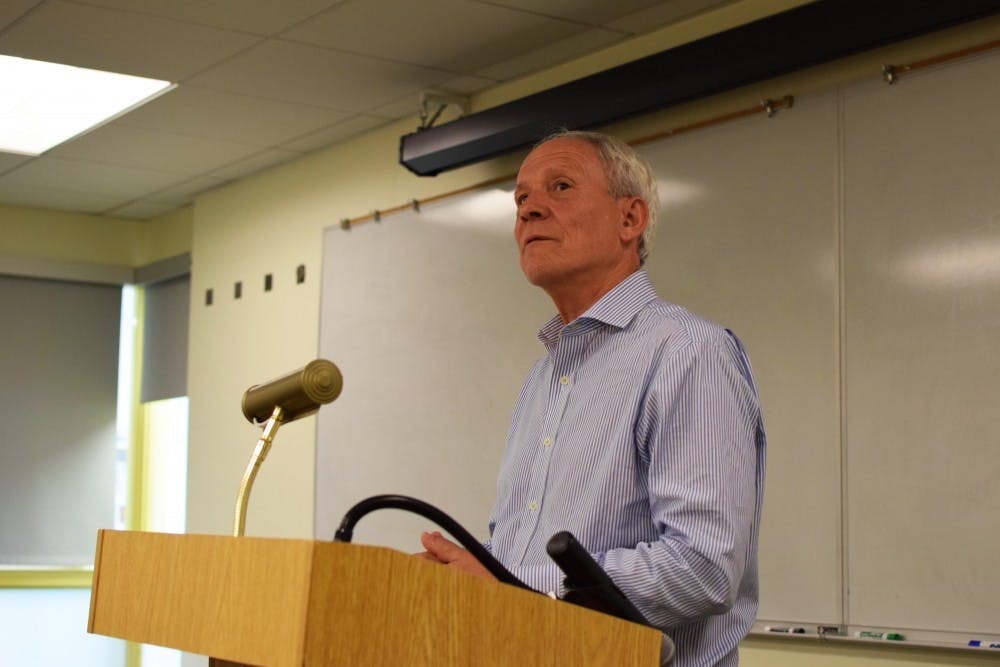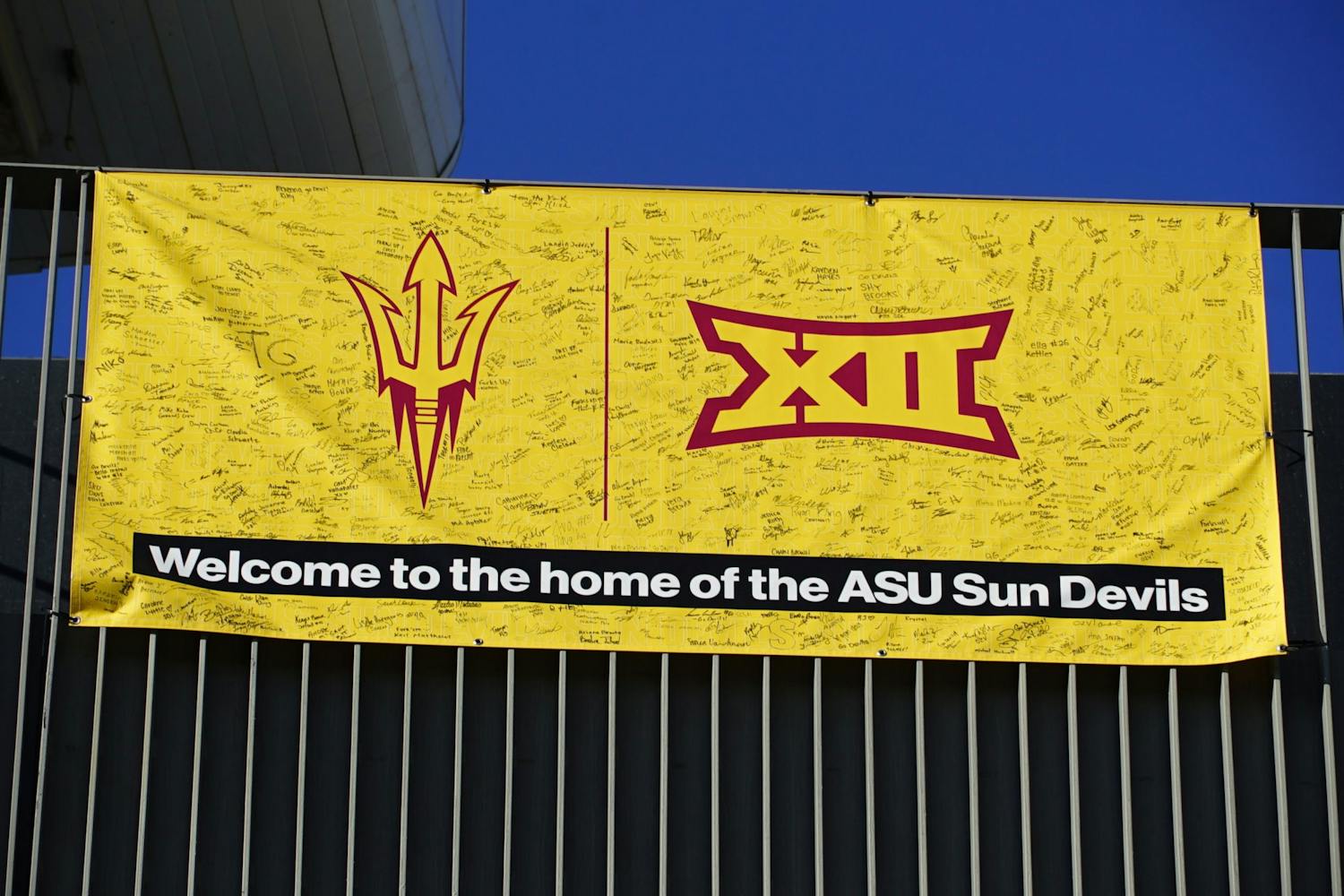Business and sustainability aren't always considered complementary, but outdoor apparel company Patagonia and its $575 million revenue have proven that it not only is a sustainable business possible, it can also be profitable.
As much as they can, the Patagonia leadership wants to preserve the environment while they're in business.
“Out there, everything is suddenly more beautiful,” Vincent Stanley, the company's director of philosophy, said. “There's a feeling in the air that connects to humans. You become more self-reliant and humble. There's a desire to protect that.”
Stanley, who has been working with Patagonia since the early '70s, told the students in attendance at a talk he gave at ASU's Julie Ann Wrigley Global Institute of Sustainability on Sept. 21 that a mutual love for the environment and a desire to make changes to protect it is a major part of Patagonia’s philosophy.
“Evolution is pretty important, and it was important when we started,” Stanley said. “There was a value commonly shared in the work place – a love for wild places.”
The company employed this way of thinking during one of its more radical manufacturing changes, when its leadership decided to only use organic cotton in Patagonia products.
Although it's a more labor-intensive process to use organic cotton, the company made the choice to avoid all the pesticides used on conventional cotton farms. This decision caused a divide among workers, stopped only after Patagonia took its workers to the farms to show the difference.
“On a conventional cotton farm, the first thing you notice is the smell,” Stanley said. “It smells awful because of the pesticides. The next thing you notice is there are no birds. There's no vegetation or worms in the soil. The plants are held mechanically in place. The organic farm smelled like a field, not like a factory. There was vegetation. Nobody came back saying this isn't worth it.”
It's moments like those that Henry said defined the company.
He told the students that when starting a business, it’s crucial to follow their values from the very beginning and that a company needs the support from the top of management for its initiatives —sustainability or otherwise — to get accomplished.
Grace Strasser, a sophomore studying industrial design with a minor in sustainability, said Patagonia’s candidness is refreshing.
“I've never heard a company speak so transparently,” Strasser said. "A professor of mine was talking about Patagonia and how their microplastics in their products are impacting bodies of water. (Stanley) brought that up and was openly talking about it during the speech.”
What Strasser is referencing is Patagonia's use of a type of plastic, known as microfibers, in some of its products, including its now-famous fleece jacket. Although Patagonia uses recycled bottles, the process was still harmful enough for the company to launch its Don't Buy This Jacket ad campaign, which encouraged customers to buy less clothing to minimize their environmental impact.
Strasser said that Patagonia’s sustainable practices prove it is possible for a large corporation to be environmentally conscious and that other companies adopting Patagonia’s philosophy would drastically change the environment and entrepreneurship.
But Strasser also said Patagonia’s unconventional business stance is what differentiates it from other companies and that the chance of firms adopting their philosophy isn't high in the near future.
“It'd be a huge paradigm shift, and I think it'd be difficult to happen,” she said. “Being so open with the way you do your business is pretty far off for most companies.”
Tara Hansen, a senior majoring in sustainability and supply chain management, said Henry's message is one she’ll carry with her into her career.
“I really thought he touched on a lot of great things,” Hansen said. “It's topics like these where companies can start to really make a change.”
Reach the reporter at Emmillma@asu.edu or follow @Millmania1 on Twitter.
Like The State Press on Facebook and follow @statepress on Twitter.




